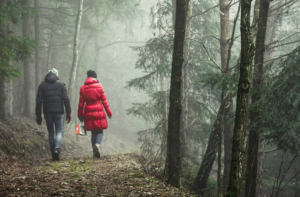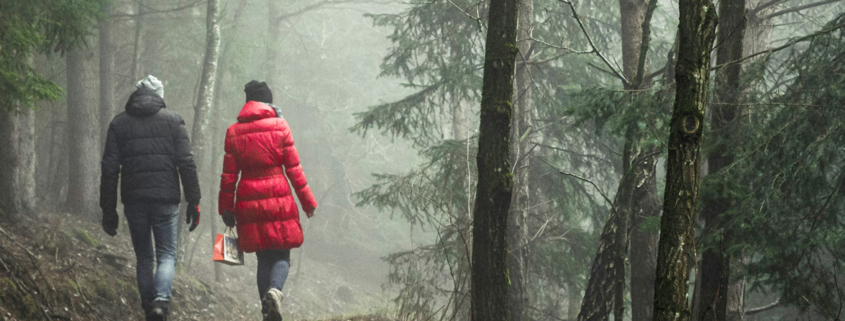Observation as Foundation for Warm Relationality by Leigh Glenn

Bean bags. Yellow. Red. Blue. Anyone familiar with a Waldorf curriculum knows the value of bean bags in helping children to strengthen vitality and develop physical coordination by passing bean bags around a circle without looking.
In the foundations program of the Association for Anthroposophic Psychology (AAP), bean bags play a different role. Students receive a bean bag, then are asked to move about, giving the bean bags away—and receiving them from others. This process of giving and receiving symbolizes the first Life Process—Breathing. We take in and let go, take in and let go. If only it were that simple!
Even in a group of people growing in trust, the bean bag dance may call up feelings: What does it feel like to give? To receive? What if I do not want to give up my bean bag? What if I give up my bean bag and no one ever gives me one? What if no one wants to receive the bean bag I want to give them?
Another AAP exercise involves looking at a projected image and sharing what one observes. It is fascinating how quickly pure observation gets truncated by shifting into associating or leaping into connecting. Observation is the first Adult Learning Process, before Relating. It is like Breathing.
In observation mode, if we look at a painting — if we taste the painting with our eyes — we may notice basics, such as dark areas and light, lines and curves. But how quickly do we bypass Observing and jump into Relating? How quickly might we assume that palms facing and touching equals a gesture of prayer? How quickly might we associate outstretched arms perpendicular to the upright body as a cross?
It is even more challenging if it is a painting we know. “Oh, that’s ‘Transfiguration’ by Fra Angelico.” That mental connection with what is supposedly known so easily cuts off observing.
How well, especially in the United States, do we notice our breathing, do we practice observation? Unless one has taken a course in Goethean Science or anthroposophic psychology, it is all too easy to take breathing for granted and to bypass observation.
What if it were otherwise?
What if we could develop a capacity to refrain from leaping into relating or associating? Would our person-to-person relationships unfold differently? Would how we relate to one another via politics become different?
Everything might change.
This is because observing requires us to tap our will forces to hold back our biases and habitual prejudices, to avoid emotional entanglement, to sidestep small-e ego, in order to simply notice. From the space created, we can then notice our thinking and our feeling, but from a Witness/Observer Self. In other words, we gain some distance, some buffering for ourselves and, with that, some time.
All too often when we feel time pressure, we want to offer something—right now! Some comment, some witticism. We feel it is expected of us and we expect it of others. I have felt this around my eldest sibling when he does not respond after asking me how I have been and I share that. I did not grow up with him, and it seems as though, in keeping with cultural norms, he ought to say something! But why? If it is his way simply to keep quiet, why can I not be all right with this? Can I not simply observe and allow? In that moment, when I would like a relating response, what would happen if I just practiced noticing—even noticing my own breathing?
Psychology often gets reduced and crammed into a space of helping others, but what if observation precedes the serving, the possibility of helping another? Sometimes, helping means maintaining an observing presence, having no expectation, and allowing.
Association or Observation?
In anthroposophy, we learn that the greater and deeper the breadth of experience from life, the vaster the repository of connected concepts. From a young age, I was ever curious, always asking questions, but a lot of those questions grew out of associations I was making. In settings where the being of Anthropos (Human) Sophia (Wisdom) is present, one is encouraged to hold questions—to refrain from asking. When I look at my questions that I note in the texts I read, they have an associative, relational quality. They are not at the level of observing.
What if my questions did arise at the level of observing? Would it be possible, then, simply to observe, for example, a political speech and listen to the speaker’s voice, note the speaker’s gestures, the hands, how the person stands, the shape of the skull, the color of the clothing, how they accentuate words? Would it be possible to do this without bringing in an habitual response that is enmeshed in the person’s political affiliation—or tied in with some piece of legislation that they sponsored that we did not like or that picks up and confirms the “media” channels of which we partake?
Opening up to Wonder
To simply observe requires a great deal of patience, immeasurable concentration. It requires us to set aside that part of us that likes certainty—the certainty we believe we “have” in habitual stances, responses, moods; the part of it that says, “Oh, I have seen this before,” and then shuts down wonder.
In these times, all of humanity stands at a—some say, the—threshold. To cross well, though, requires us to practice living from our own highest “I” as well as perceiving the “I” of the Other (at times now, these are one and the same). We will begin more and more to live from our own highest “I” and to perceive the “I” of the Other to the extent that we replace our comfortable, habitual responses with concentration and patience to observe, to witness, to hold, just a little longer, a detached interest. By developing those skills, we may find no need to slip into non-thinking likes and dislikes or “triggers” that fling us into liking or hating.
Leigh Glenn, a writer/editor, is a student in the three-year certificate program of the Association for Anthroposophic Psychology. AAP will launch a new Foundations cohort in 2025. For more information, visit https://anthroposophicpsychology.org/3-Year-Certificate-Program-Cohort-6-2025


